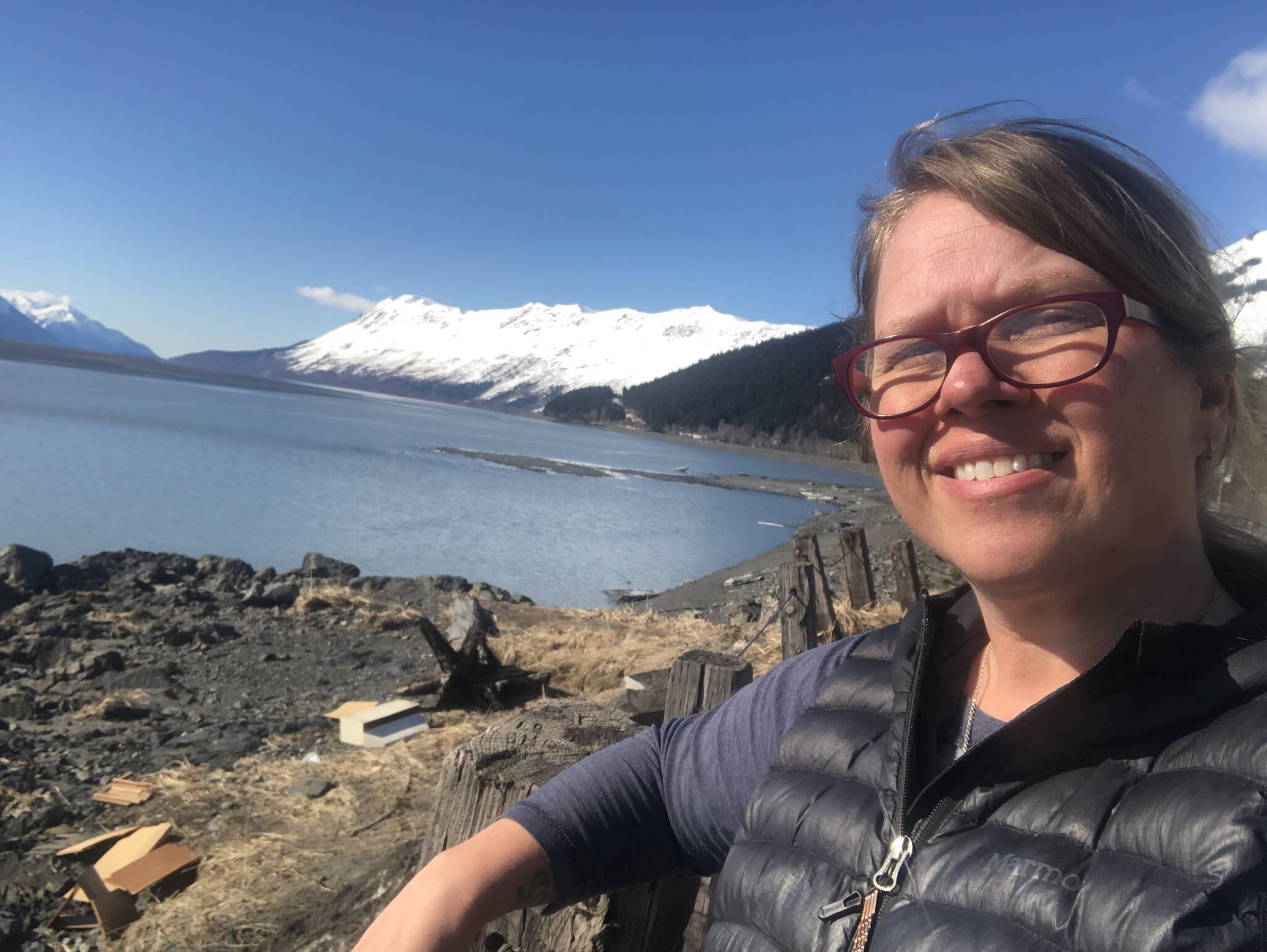Soldotna’s Karyn Griffin has joined a growing list of candidates vying for Alaska’s newly vacant seat in the U.S. House of Representatives. The seat opened after the former Republican U.S. Rep. Don Young died while traveling from Washington, D.C., to Alaska in March.
As of Friday at 1:30 p.m., 50 people had filed to run for the seat in addition to Griffin, including former Alaska Gov. Sarah Palin, who made a late entry Friday. Other candidates include Republican Nick Begich, North Pole city council member Santa Claus, Anchorage Assembly member Christopher Constant, former U.S. Sen. candidate Al Gross, Alaska State Sen. Josh Revak and Alaska House Rep. Adam Wool. Denny Aguayo, of Nikiski, and former President of the Kenai Peninsula Educational Support Association Anne McCabe also filed to run.
Griffin said Friday that she is mostly running to raise awareness about different issues that are important to her, but if she somehow makes it to the top four, that would be cool too. She has a history of political organizing and activism through which she’s been able to get involved in state and local politics.
“I know in all honesty, I don’t have a shot in the dark at this,” Griffin said.
Still, she thinks the race will be an interesting study in how far someone can go without fundraising. Griffin said she will not accept campaign cash as she vies for the congressional vacancy. Instead, she is encouraging supporters to make donations to local nonprofit organizations, with a special focus on those serving women, the LGBTQ+ community and homeless populations.
“If you have money to give to a candidate, you have money to give to charitable organizations,” Griffin said. “ … There are so many better ways that money can be spent.”
She’s predicting that some of the bigger names in the race — Begich, Constant, Gross — will be those that make it past the primary in June, but asked voters to consider where candidates’ financial support is coming from and to what issues they may be “beholden” as a result.
“I really think that there has to be a way for people to be involved in politics and not be beholden by donors,” Griffin said.
A candidate Griffin said she is worried about, however, is Santa Claus. Claus, who also serves on the North Pole City Council and describes himself as an “independent, progressive democratic socialist,” joined the race Friday afternoon and has similarly said his campaign will not solicit or accept campaign contributions.
“Who’s going to vote against Santa?” Griffin said.
Griffin described herself as a “brash” and “honest” person who doesn’t “sugarcoat” things and said she’d ultimately be honored to get even one vote.
“I’m just going to be me and if I can help some people along the way, fantastic,” Griffin said.
The candidate filing deadline was Friday at 5 p.m. Whoever is elected to fill Alaska’s U.S. House seat will serve the remainder of Young’s term, which expires in January of 2023.
As required by Alaska Statute, Gov. Mike Dunleavy last week issued a proclamation declaring the seat vacant and setting the dates for the special election. Candidates interested in filling the vacancy had to file by April 1, with the special primary election day scheduled for June 11. The special general election will be held concurrently with Alaska’s regular state primary election on Aug. 16.
The special primary election will be a by-mail election, which the Alaska Division of Elections says underscores the need for voters to verify that their mailing address is correct. The division said in a March 25 update that it will begin mailing ballots on April 27.
People must be registered to vote by May 12 to vote in the special primary election.
Voters can check their voter registration information at myvoterinformation.alaska.gov or by calling a regional office. Voters can change their address online at voterregistration.alaska.gov. The Anchorage regional office can be reached at 907-522-8683.
The upcoming special elections will mark the first time voters will cast ballots under the new open primary and ranked choice voting systems narrowly approved by Alaska voters in 2020.
Under those changes, all voters will vote the same primary ballot regardless of political party. The top four vote-getters from the primary will then move on to the general election, regardless of party affiliation. If there are fewer than four candidates running in the primary, all will move to the general election.
Ranked choice voting, which will be used for the general election, allows voters to choose more than one candidate in ranked order. Voters can rank up to four candidates.
The ranked choice ballot shows a grid of bubbles, with one row for each candidate and one column for preference order. Voters fill in the bubble in the “1st Choice” column that corresponds to their first choice candidate. Voters then move to the second column and fill in the bubble that corresponds to their second choice candidate, and so on.
If a candidate receives more than 50% of the first-choice votes, that candidate would be declared the winner of the election.
If no candidate receives more than 50% of the first-choice votes, the candidate who received the least number of first-choice votes is eliminated. Then, the voters who ranked the eliminated candidate as their first choice would have their second-choice candidate votes tabulated. The process will continue until one candidate emerges with more than 50% of the votes.
Sample ranked choice ballots are available on the Alaska Division of Elections website.
Reach reporter Ashlyn O’Hara at ashlyn.ohara@peninsulaclarion.com.

